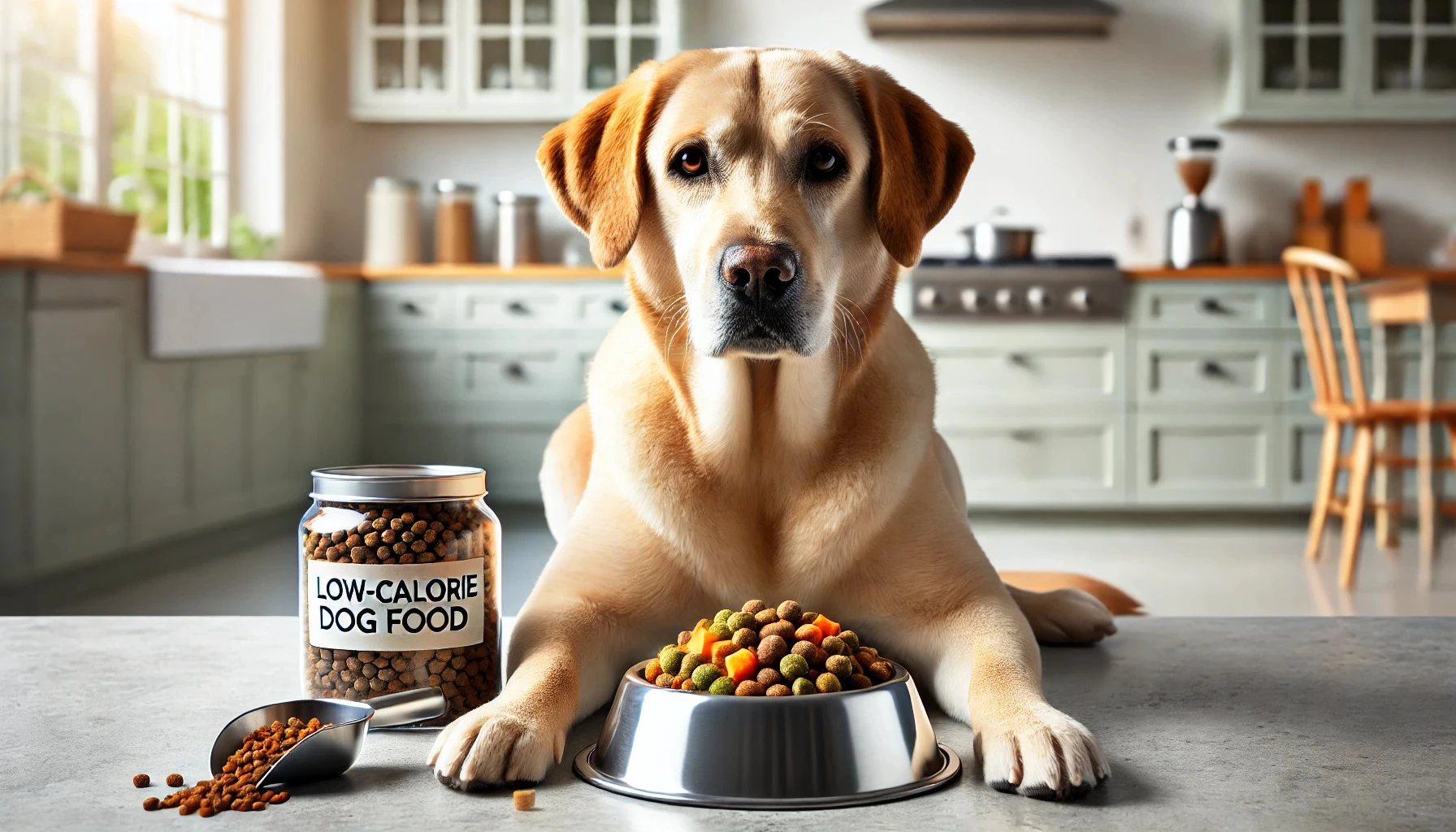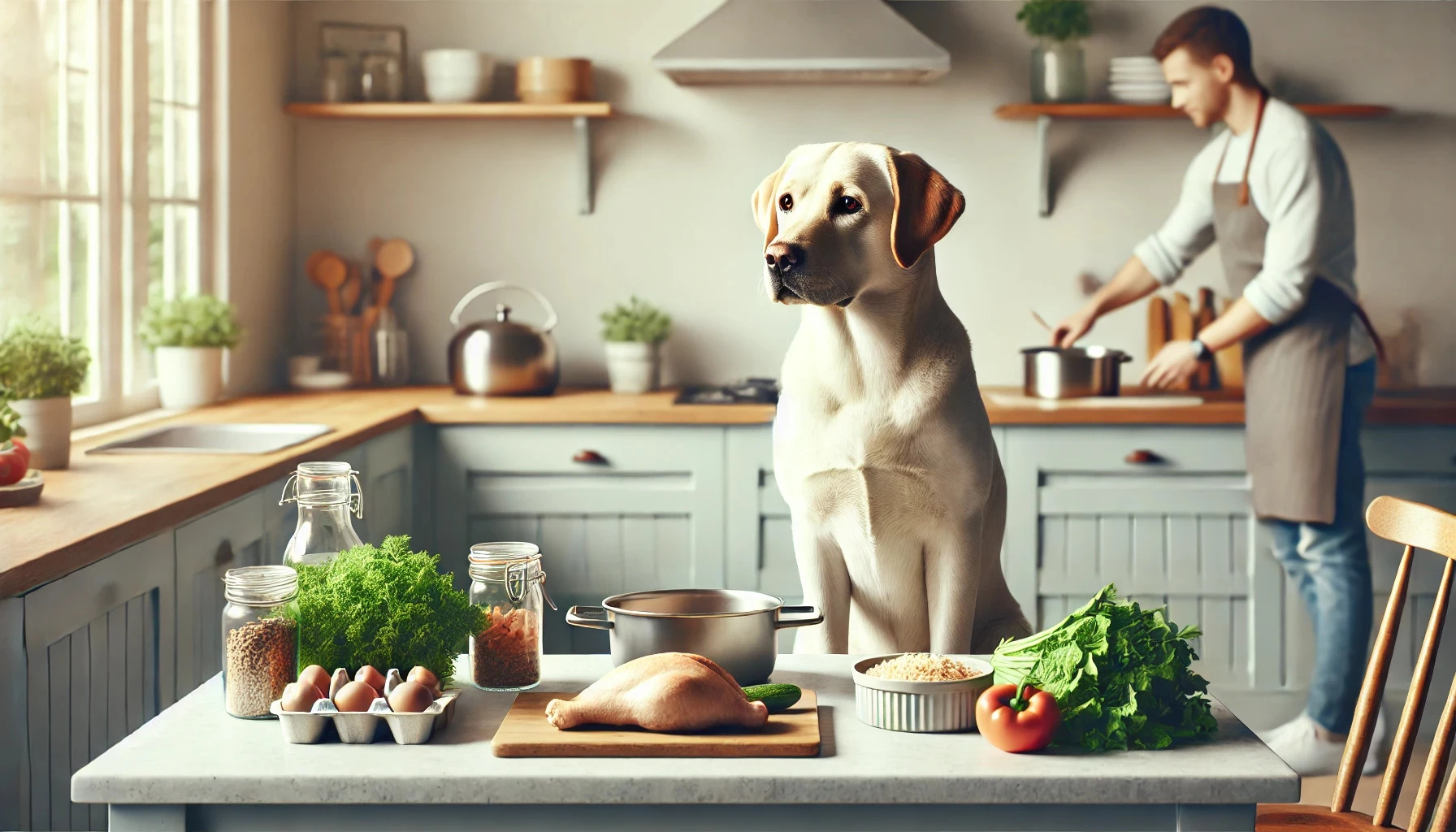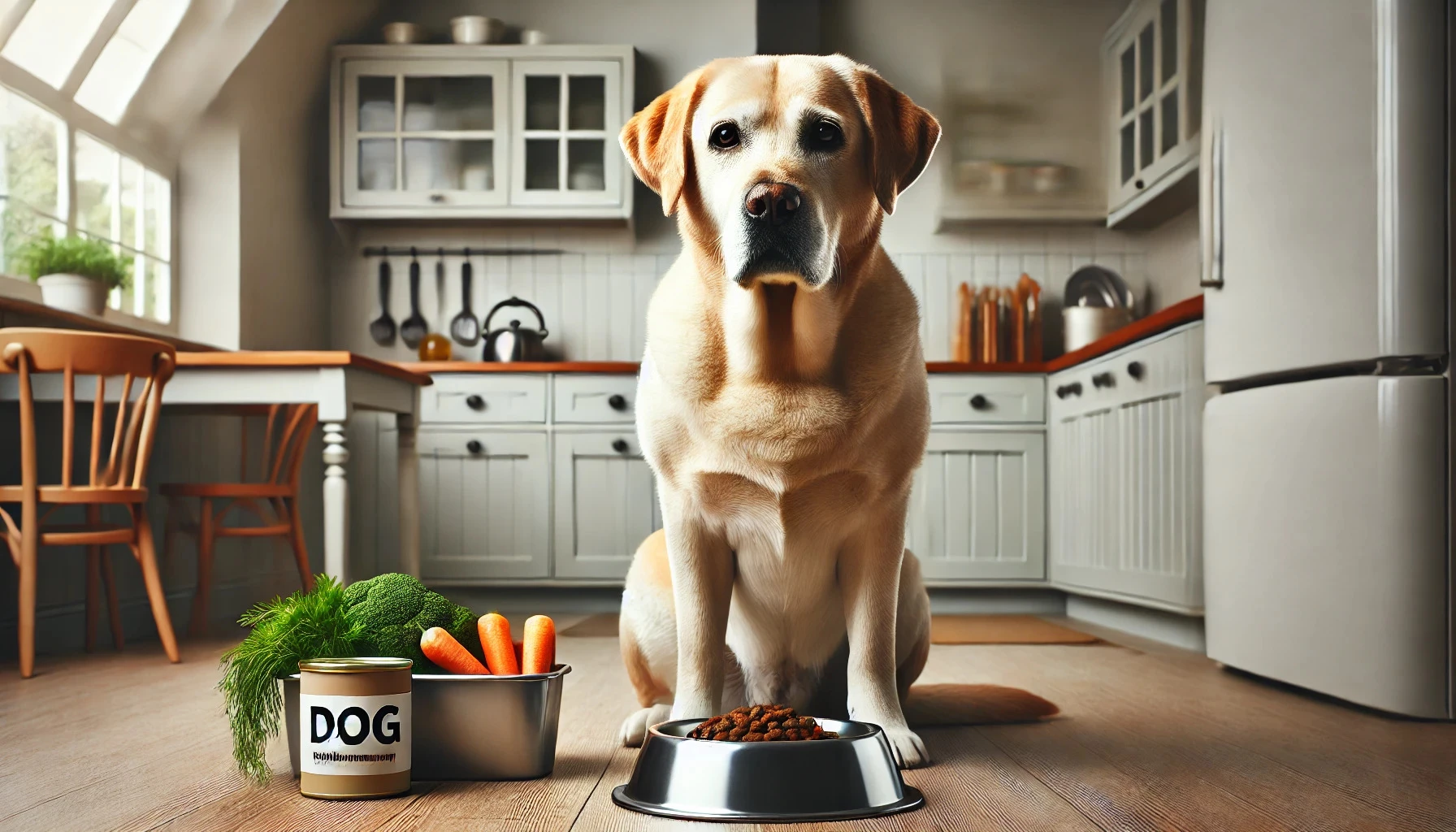On this page
Is it essential to adjust the diet of an 8-year-old Labrador to include low-calorie foods?
Yes, as Labradors age, their metabolism slows down, making them more prone to weight gain. Excess weight can put stress on their joints and increase the risk of health issues like arthritis, diabetes, and heart disease.
Labradors, being naturally food-driven, often overeat if their portions aren’t controlled. Compared to breeds like Greyhounds, which have leaner builds, Labradors are genetically predisposed to weight gain. Providing them with low-calorie foods ensures they maintain an ideal weight while still receiving the nutrition they need.
This article explores the best low-calorie food options for your senior Labrador, along with expert insights to help you make informed decisions.
Confused about your Labrador’s diet? Use Dosty app for expert advice.
What should you look for in low-calorie food for a senior Labrador?
The ideal food should be nutrient-rich, high in protein, and low in fat. This ensures your Labrador gets essential nutrients without excess calories.
Key Features of Low-Calorie Dog Food:
High Protein: Supports muscle mass without adding unnecessary fat.
Low Fat: Keeps calorie count in check, aiding weight management.
Added Fiber: Promotes digestion and helps your dog feel full.
Joint-Supporting Ingredients: Glucosamine and chondroitin to reduce arthritis risks.
Dr. Amanda Clark, a veterinary nutritionist, explains, “Low-calorie dog foods are designed to maintain a healthy weight without compromising on essential nutrients.”

Are there specific foods that work well for 8-year-old Labradors?
Yes, certain brands and natural foods are excellent for managing your dog’s weight while keeping them healthy.
Recommended Low-Calorie Foods:
Hill’s Science Diet Adult Light: Contains 18% fewer calories than standard dog food.
Royal Canin Weight Care: Rich in fiber, promoting fullness with fewer calories.
Blue Buffalo Healthy Weight: High-quality protein and natural ingredients.
Natural Veggies: Cooked carrots, green beans, or sweet potatoes as healthy snacks.
Dr. Kevin Ross notes, “Adding natural vegetables as treats can replace high-calorie biscuits and reduce overall calorie intake.”
For more tips visit our page Dosty.co.
Do low-calorie foods help Labradors avoid health problems?
Yes, obesity is one of the leading causes of health issues in senior Labradors, and low-calorie diets can prevent or manage these problems.
Health Benefits of Low-Calorie Foods:
Joint Health: Reduced weight means less strain on joints, lowering arthritis risks.
Heart Health: Prevents obesity-related cardiovascular problems.
Better Mobility: Helps maintain activity levels as Labradors age.
Dr. Emily Sanders states, “Maintaining a healthy weight can add years to your Labrador’s life and improve their quality of living.”

Do Labradors have unique dietary requirements compared to other breeds?
Yes, Labradors have a slower metabolism and a strong appetite, making weight management more challenging.
Breed-Specific Comparisons:
Labradors: Require controlled portions and low-calorie options to avoid weight gain.
German Shepherds: Need higher protein due to their active and muscular build.
Chihuahuas: Consume fewer calories due to their smaller size but have higher metabolic rates.
Dr. Laura Bennett explains, “Labradors’ tendency to gain weight requires owners to be proactive in managing their diet.”
Discover tailored insights to choose the Best Family Dog!
Should you switch your Labrador to low-calorie food abruptly?
No, transitioning gradually helps avoid digestive issues and ensures your Labrador adjusts to the new diet.
Steps for a Smooth Transition:
Start Mixing: Replace 25% of the current food with low-calorie food.
Increase Gradually: Over 7-10 days, increase the proportion of the new food to 100%.
Monitor Response: Watch for changes in appetite, energy, or stool consistency.
Dr. Michael Adams advises, “A slow and steady transition ensures your dog adapts to the new diet without digestive upset.”
Can you prepare low-calorie meals at home for your Labrador?
Yes, but it requires careful planning to ensure the meals are nutritionally complete.
Examples of Home-Cooked Low-Calorie Meals:
Lean Protein & Vegetables: Grilled chicken with steamed broccoli and carrots.
Fish-Based Meal: Cooked salmon with quinoa and green beans.
Pumpkin Treats: Mashed pumpkin as a low-calorie snack.
Dr. Sarah White advises, “Home-cooked meals can be great, but consult a vet to avoid nutritional imbalances.”

Conclusion: Keep Your Labrador Healthy With Low-Calorie Choices
Switching your 8-year-old Labrador to low-calorie foods can significantly improve their health and longevity. Focus on high-protein, low-fat options, include natural treats, and monitor their weight regularly. With the right diet and care, your Labrador can maintain an active and happy lifestyle in their senior years.
Take control of your Labrador’s diet today. Download Dosty app for personalized feeding plans and expert tips.

